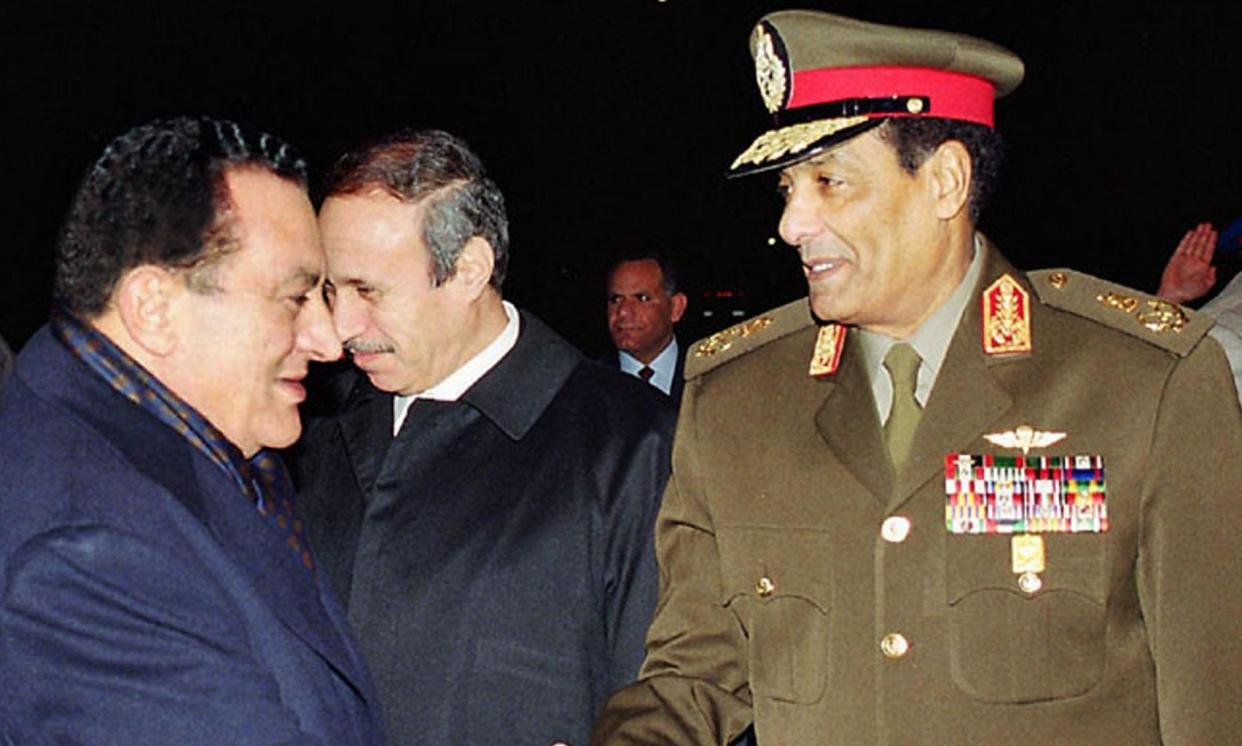Field Marshal Mohamed Tantawi obituary

Field Marshal Mohamed Tantawi, who has died aged 85, took charge of Egypt from the ousting of its president, Hosni Mubarak, in February 2011 until a return to democracy with the election of Mohamed Morsi of the Muslim Brotherhood in June 2012.
Despite being a pillar of the former regime – “Mubarak’s poodle” to some – Tantawi was given the job in response to the demands of a huge protest movement. He was respected for his decency and clean human rights record, though he became the focus of anger in his own right when demonstrators returned to the streets to protest against the army’s handling of the transition.
Tantawi’s suitability for leading it was viewed with trepidation in the west. As a result of the peace agreement signed by Egypt and Israel in 1978 the US gave the former annual military aid of $1.3bn, and WikiLeaks had revealed a critical memo from the US ambassador in Cairo, Francis Ricciardone, describing Tantawi as “frozen in the Camp David paradigm and uncomfortable with our shift to the post-9/11 global war on terror”.
An anxious US had been urging Tantawi towards a broader and more flexible partnership “based on stated strategic objectives, including border security, counter-terrorism, peacekeeping and civil defence”.
On 29 January 2011, after Mubarak sacked the cabinet in a vain attempt to calm mass protest, Tantawi, already the defence minister, was appointed deputy prime minister. Mubarak was subsequently swept from power, and in February Tantawi was named head of the Supreme Council of the Armed Forces (SCAF) that took over control of Egypt. He promptly had five phone discussions with the US secretary of state, Robert Gates, in which he assured Washington that Egypt’s cordial relationship would remain intact. He had served in three conflicts with Israel: the 1956 Suez crisis and the 1967 and 1973 wars.
Tantawi and the SCAF were eager to reduce tension by appeasing the Islamists. The first presidential pardons were issued in March 2011 and signed by Tantawi as defence minister. The decision freed 60 convicted Islamist militants who were apparently described as political prisoners in a rare admission by the state.
But there was also a campaign to crush dissent. In April 2011, a 25-year-old blogger, Maikel Nabil, was given a three-year jail sentence after accusing the army of torturing protesters and working to undermine the revolutionary movement. Three days before he was arrested, he published a post calling on Israelis to “stop supporting Egyptian militarists like Tantawi”. The sentence was subsequently reduced, and he was released in January 2012.
The initial euphoria with which Egyptians had greeted the military takeover had cooled, and also in April 2011 many thousands of angry demonstrators congregated in Tahrir Square, Cairo, for one of the largest demonstrations held since Mubarak’s downfall. This protest was called the “Friday of warning”. For the first time, Tantawi was singled out for rebuke when speakers called him a dictator and demanded his resignation. Some shouted: “Tantawi is Mubarak.”
In October military armoured vehicles ran over and killed protesters in front of the state TV headquarters. Dozens were killed in other street skirmishes, hundreds were arrested and more than 10,000 civilians were sentenced by military tribunals. Following deadly clashes with protesters in Tahrir Square, in November 2011 Tantawi made a live TV address promising a speedier return to civilian rule.
He was still seen as a contender for the presidency, despite his age and reported ill health. He was also thought to lack political ambition or support from the armed services rank and file, and in the event did not become involved in the following year’s elections, won narrowly by Morsi.
In August 2012, after a militant attack on troops in the Sinai peninsula, Morsi sacked Tantawi and General Sami Enan, the army chief of staff, but sugared the pill by appointing them presidential advisers. They were granted immunity from prosecution, but the military was stripped of its role in drafting a new constitution. The new defence minister was Abdel Fatah al-Sisi, a staunch supporter of Tantawi who went on to overthrow Morsi the following year.
Of Nubian origin, Tantawi was born in Cairo. His military career was successful and fast-rising. He took a master’s degree in military science, then a fellowship at the High War College in the capital. In 1956, he was appointed commander of an infantry battalion, before being sent to Pakistan as military attache. On his return to Egypt, he became chief of the planning branch of the operations department of Egypt’s field army. From there he moved to command an infantry brigade, and became chief of the operations branch; soon he was chief of staff of the field army, then commander of the presidential guard.
Following the dismissal of Lt Gen Yousef Sabry Abu Taleb, in May 1991, he rose to become commander-in-chief of the armed forces and minister of defence, and was promoted to field marshal. Tantawi led Egypt’s army in the Gulf war on the side of the US-led coalition, and received Kuwait liberation medals from Egypt, Kuwait and Saudi Arabia.
Many believed that this military star would have succeeded Mubarak had an attempted assassination of the president in 1995 been successful. When Tantawi’s eventual period of leadership came to an end in 2012, he was appointed to the Order of the Nile.
He is survived by his wife and two sons.
• Mohamed Hussein Tantawi, soldier and statesman, born 31 October 1935; died 21 September 2021

 Yahoo News
Yahoo News 
